WELCOME TO
PaardenKloof Estate
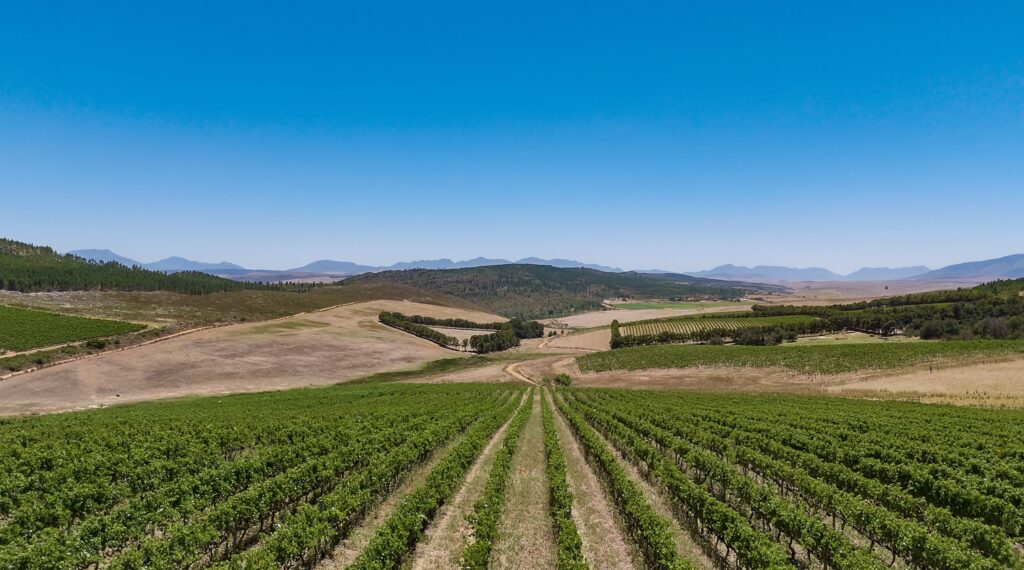
Pure, Rugged and Proudly South African
Our 36 hectares of vineyards are rooted in a tapestry of ancient soils that shape the distinctive character of our wines. Nestled on the slopes of the Babilonstoring Mountains, the vineyards thrive in Shale, Table Mountain Sandstone, Koffieklip, Granite, and ancient clay soils — each contributing to the structure, minerality, and layered complexity that define our cool-climate, single-varietal wines.
These soils, combined with the maritime influence from Walker Bay and the surrounding fynbos of the Cape Floral Kingdom, result in wines with elegant acidity, refined tannins, and aromatic expressions of wild herbs and earth.
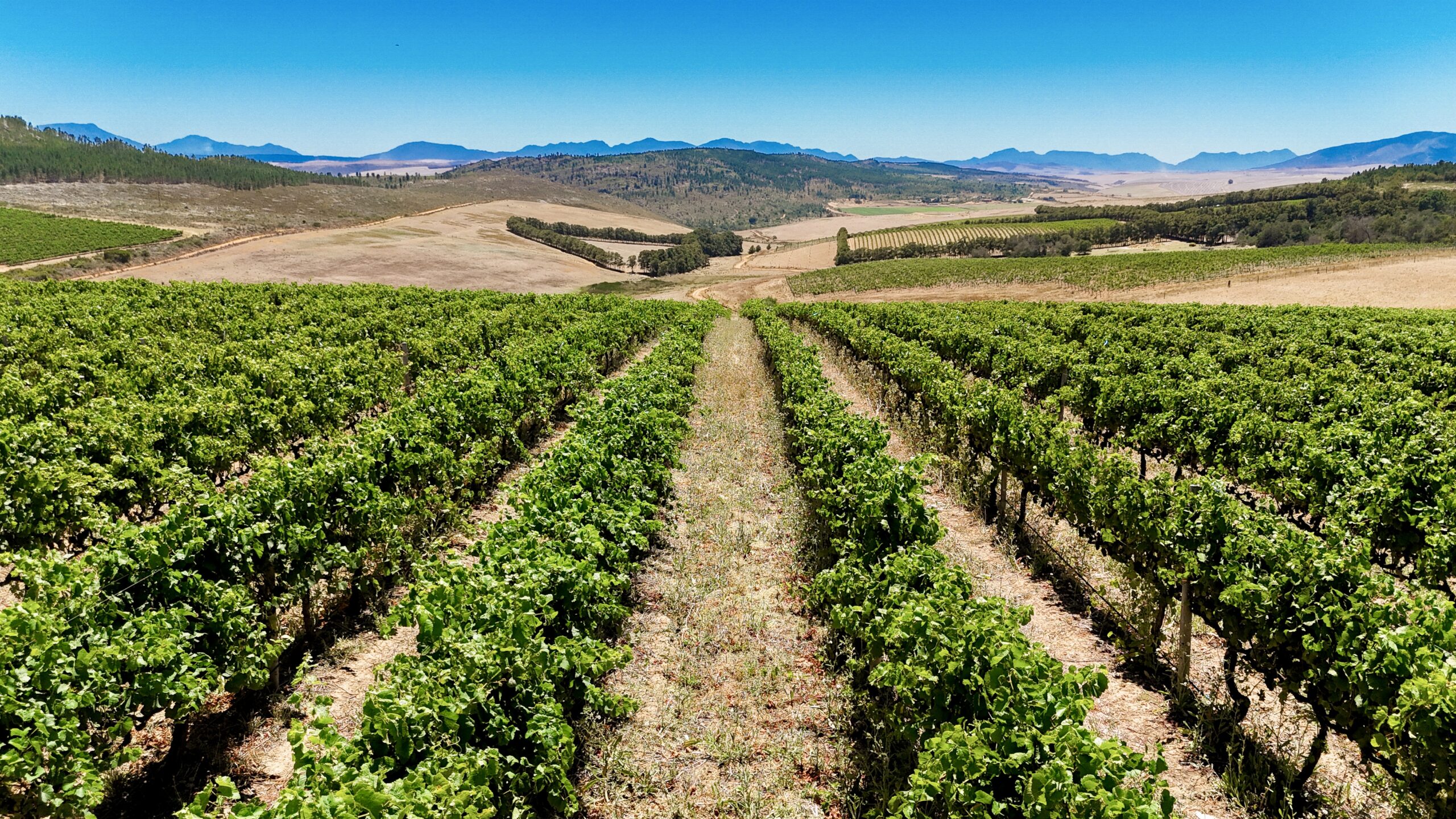
Ancient Soils
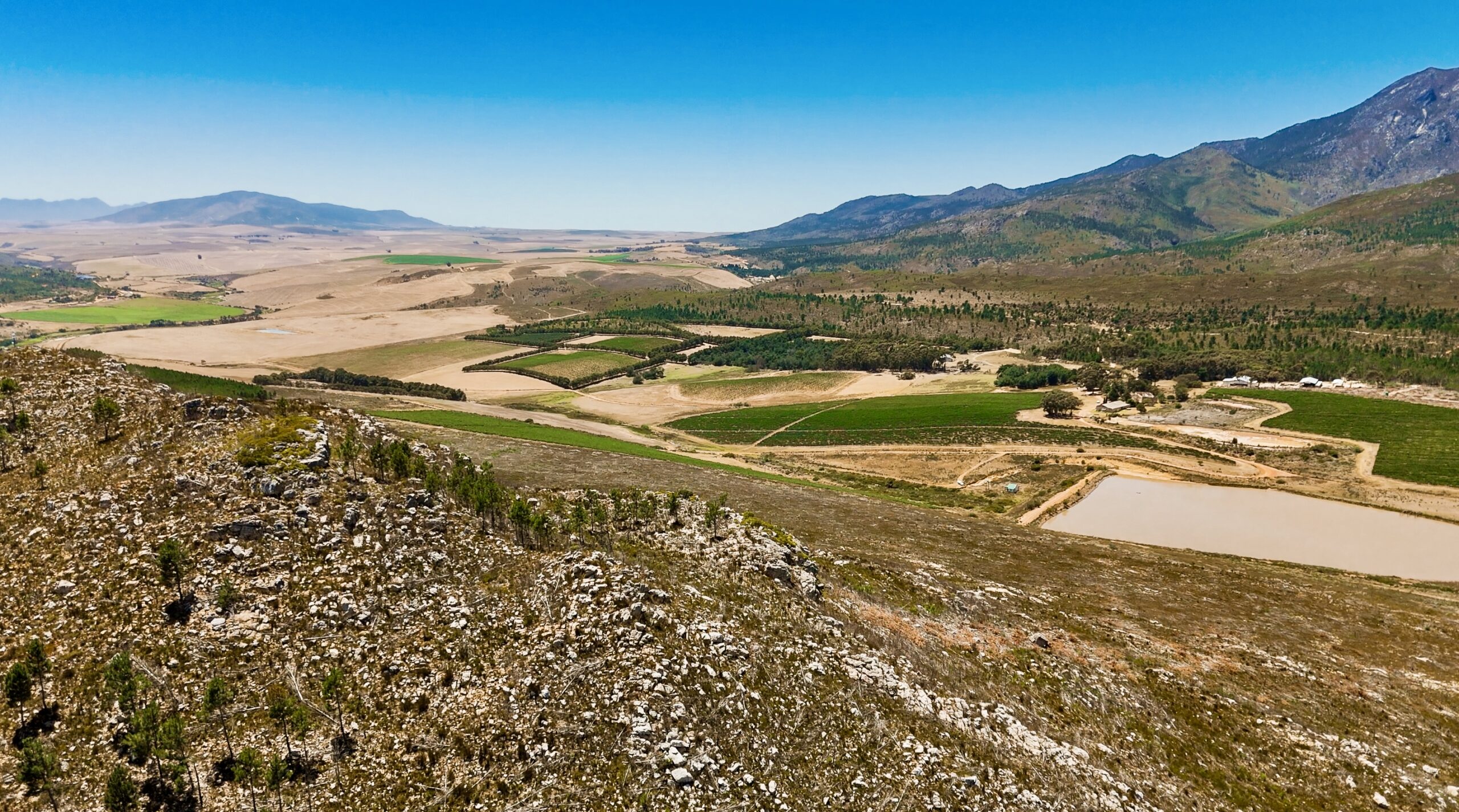
Mountain Terroir
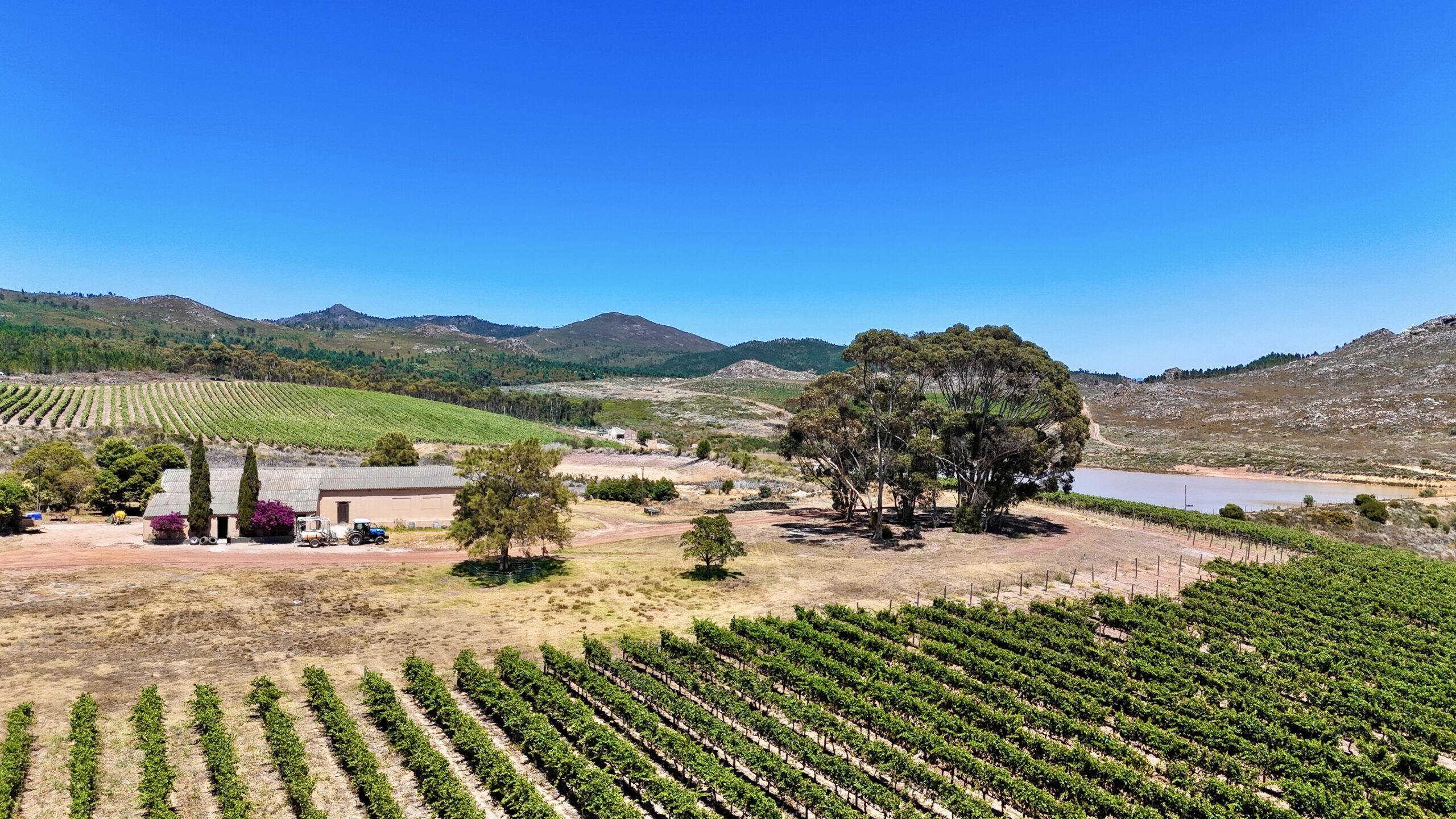
Living Landscape
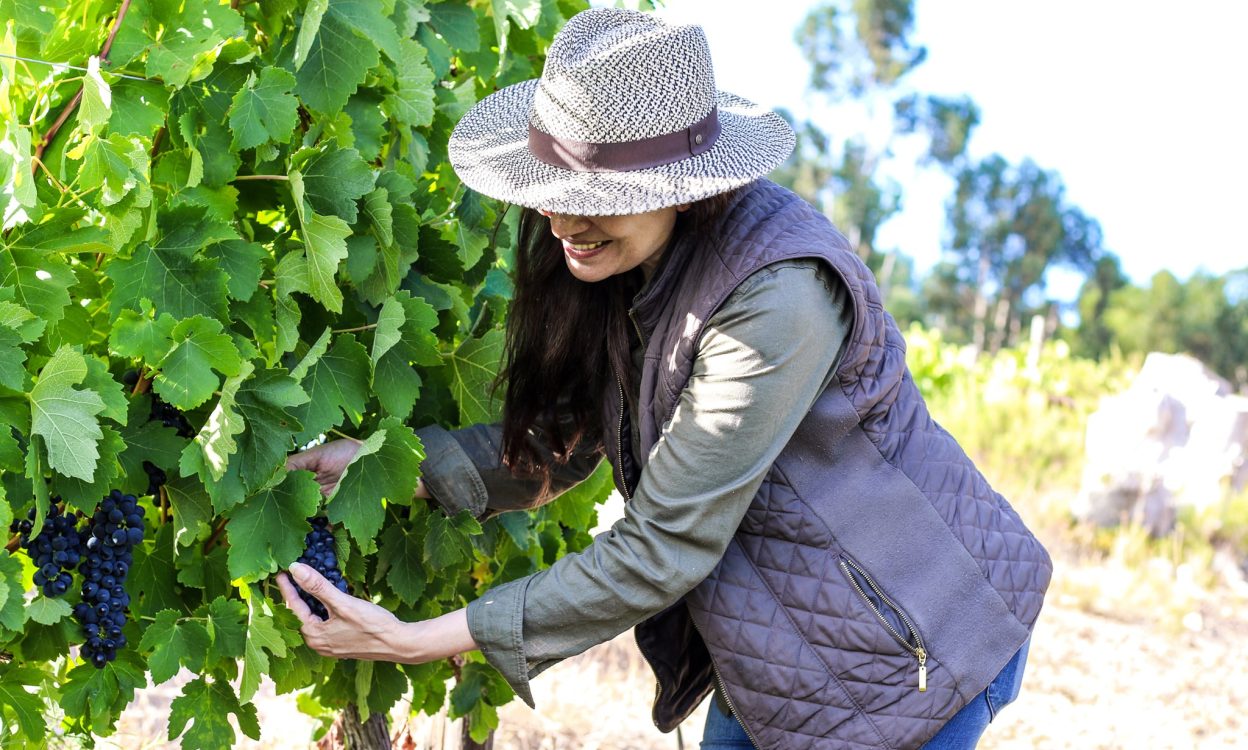
Our History
PaardenKloof Estate is situated in the heart of the Cape Floral Kingdom and represents the epitome of what can be achieved on these beautiful northern slopes of the Babilonstoring Mountain Range.
The current vineyards were planted in 2003. Our records show that the first vineyards were planted at PaardenKloof in the early 1800’s when our unique valley was used by the Voortrekkers to herd their horses at high altitude to avoid the Tstetse fly that decimated their herds. The farm was aptly named PaardenKloof, meaning “Valley of the Horses” in Dutch. To this day these wild horses roam the Bot River lagoon.
Our farmland speaks of an even more ancient history, with two age-old rivers originating from the land. These are the Gouka and Leeu Rivers that were used by the Khoisan to sustain their Nguni cattle herds for thousands of years. The name Gouka is derived from the term “gouga” meaning “butter” in the Khoisan language, the product traded between the Khoisan and settlers for generations. Bot River was subsequently named after “botter”, the shortened Afrikaans term for butter. “Leeu” means “lion” in both Dutch and Afrikaans and refers to the roaring sound of our river when in full force.
The Swart Rivier is joined by the Gouka River on the eastern boundary, and the Leeu River on the western boundary. The Babilonstoring Mountain Range supplies the farm with fresh water, and boasts the highest peak in the Overberg, towering over the valley at an incredible 1167 meters.
Today, the farm is a celebration of environmental intelligence, historical preservation, and sustainable farming and winemaking in the tradition of our Khoisan and Dutch ancestors.
PaardenKloof Estate was also the first to re-introduce and maintain a healthy, pure, indigenous herd of Nguni Cattle in the area.
NGUNI CATTLE
Nguni cattle, indigenous to the area and beautiful in their unique patterns, can be found wandering the farm in open, free-roaming fields. Our stud herd is tough and hardy, atoned to the mountainous conditions.
PaardenKloof Estate is one of the first farms in the Western Cape to have re-introduced the beautiful indigenous Nguni cattle to the Cape, its original home. Herded and bred by the Khoisan in this very area for thousands of years, Nguni cattle are perfectly attuned to the environment on the farm and are resistant to most diseases, ticks and drought.
Their name is derived from the black tribes of Africa that first farmed these across the continent, collectively known as the Nguni people. The breed itself is a mixture of Bos taurus and Bos indicus cattle that entered Africa over 8000 years ago and are a hardy, medium-sized breed of cattle that weigh around 500 – 600kg (for bulls) and 300 – 400kg for cows. They are excellent foragers and each coat is as unique as our fingerprints.
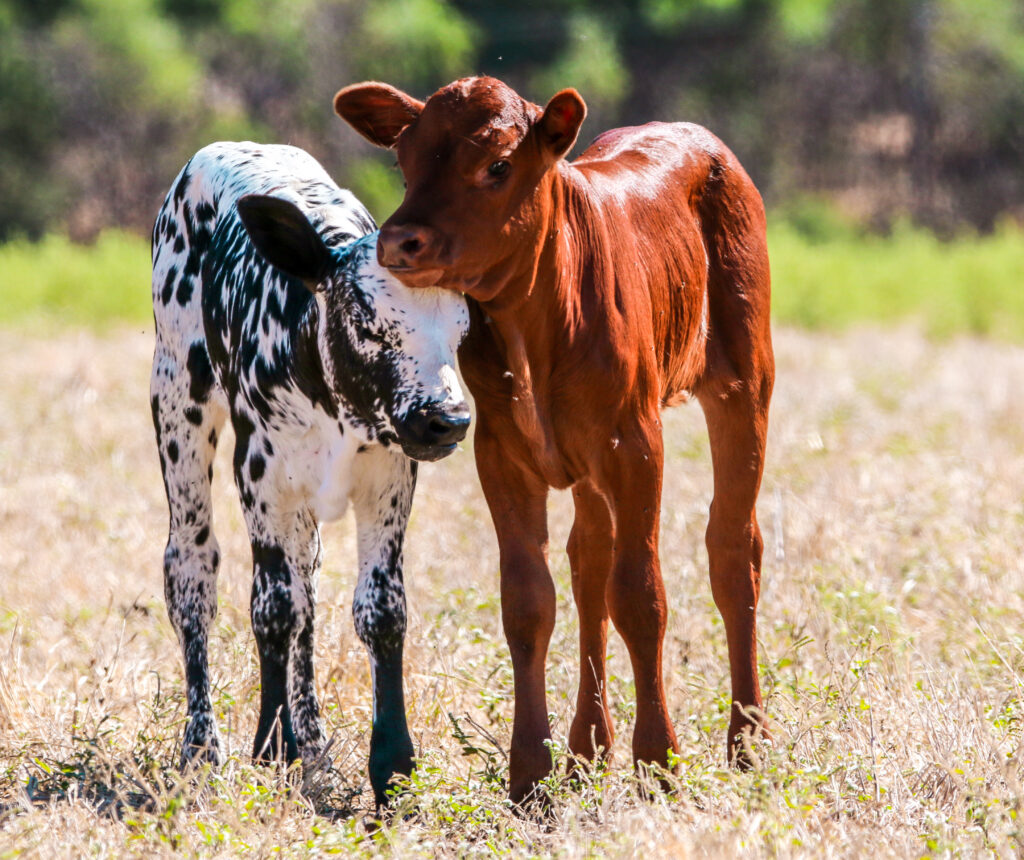
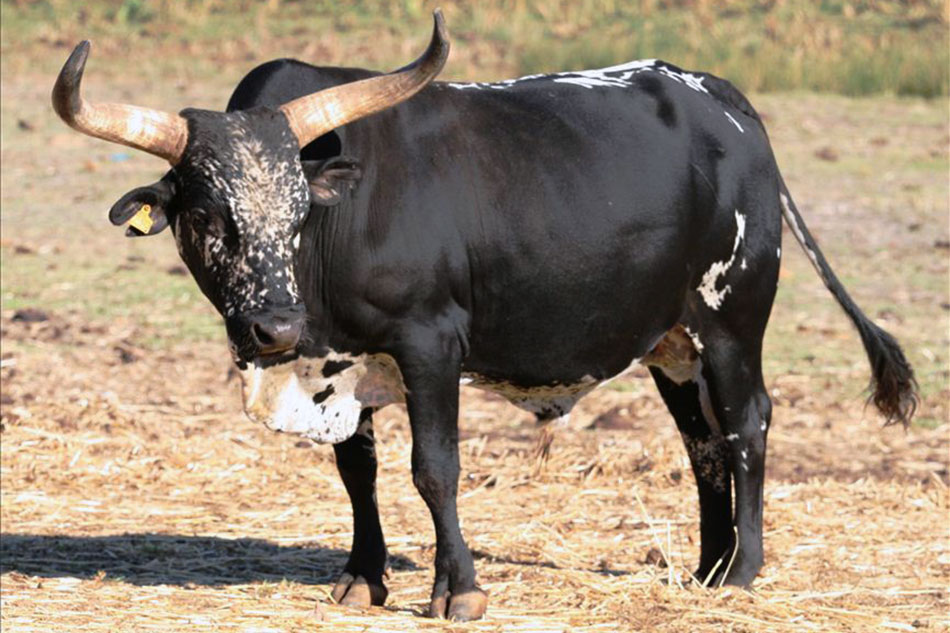
Based on the ecological principles of the farm, the Nguni herd follows a natural rhythm and enjoys a free-grazing lifestyle.
These principles also include alternative solutions to the complicated weaning system where one avoids putting the mothers under stress so that they can conceive naturally and easily, and by breeding them in groups on open lands.
These techniques have led to strong, healthy cattle that have only improved with each new generation.
Nguni Cattle Walks
Exclusive to PaardenKloof Wine Club Members